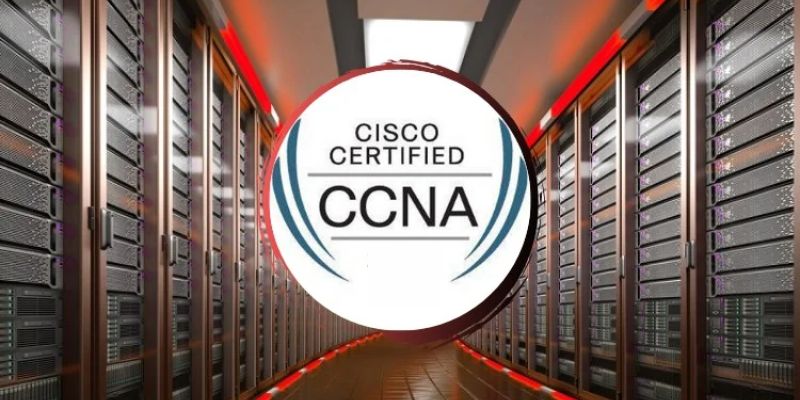The CCNA (Cisco Certified Network Associate) certification is one of the most respected credentials for networking professionals. It helps learners gain knowledge about network fundamentals, security, and the latest technologies used in modern networks. Preparing for the CCNA exam requires understanding a wide range of topics that are essential for anyone looking to build a career in networking. The syllabus is designed to cover both theoretical concepts and practical skills that are needed to manage, configure, and troubleshoot networks effectively. Professionals looking to gain hands-on expertise often enroll in a CCNA Course in Coimbatore to prepare comprehensively.
Network Fundamentals
The foundation of the CCNA exam is network fundamentals. This topic covers the basics of networking, including understanding different types of networks such as LAN, WAN, and wireless networks. Learners also study how devices communicate, the role of IP addresses, subnetting, and the basics of routing and switching. This section ensures that candidates understand how networks operate and prepares them for more advanced topics in the exam.
Network Access and Switching
Network access and switching is another important area of the CCNA syllabus. It focuses on how devices are connected within a network and how data is transmitted efficiently. Candidates learn about switches, VLANs, inter-VLAN routing, and the importance of redundancy and loop prevention. This section also covers configuration and verification of network devices, which are essential skills for setting up and maintaining secure and reliable networks.
IP Connectivity and Routing
IP connectivity and routing is a core topic in the CCNA exam. It explains how devices communicate across different networks and how routers help direct traffic. Learners study routing protocols such as OSPF, the difference between static and dynamic routing, and how to configure and troubleshoot routers. Understanding this topic is crucial because routing ensures that data reaches the correct destination in both small and large networks. A professional CCNA Course in Pondicherry equips candidates to confidently handle routing and connectivity challenges.
IP Services
IP services are another key area in the CCNA syllabus. This section covers services that support network operations, including DHCP, NAT, and DNS. Candidates also learn about quality of service (QoS) and other features that help manage network traffic effectively. Knowledge of IP services is important for maintaining smooth network performance and providing reliable connections to users and applications.
Security Fundamentals
Security fundamentals are increasingly important in networking today. This section teaches candidates about network threats, security policies, and best practices for protecting data. Topics include configuring firewalls, securing network devices, and understanding access control. The CCNA exam emphasizes practical skills for implementing security measures to prevent unauthorized access and safeguard sensitive information.
Automation and Programmability
The latest CCNA syllabus also includes automation and programmability, reflecting the growing role of software in networking. Candidates learn about network automation tools, APIs, and basic scripting concepts. This knowledge helps network professionals manage networks more efficiently and adapt to modern technologies such as SDN (Software-Defined Networking). Understanding automation is becoming essential for anyone who wants to stay competitive in the networking field. Students can master these skills in a CCNA Course in Madurai.
Wireless Networking
Wireless networking is a significant topic in the CCNA syllabus. Learners study wireless standards, configuring access points, and troubleshooting wireless networks. This section emphasizes understanding wireless protocols and ensuring reliable wireless connectivity in various environments. With the rise of mobile devices and IoT, knowledge of wireless networking has become an essential skill for networking professionals.
Troubleshooting and Network Management
Troubleshooting and network management are critical skills covered in the CCNA exam. Candidates learn how to identify and resolve common network issues, monitor network performance, and optimize network operations. This section emphasizes practical experience, as candidates must demonstrate the ability to maintain network reliability and quickly address problems that arise. Strong troubleshooting skills help ensure that networks run smoothly and efficiently.
Emerging Technologies
The CCNA syllabus also introduces emerging networking technologies to prepare candidates for future trends. This includes topics such as IoT (Internet of Things), cloud computing, and next-generation network protocols. Understanding these technologies helps candidates stay current with industry developments and equips them to handle modern networking challenges effectively. Enrolling in a CCNA Course in Tirupur helps learners gain knowledge of emerging technologies and future-proof their networking skills.
The latest CCNA exam syllabus covers a wide range of topics that are essential for building a successful career in networking. From understanding network fundamentals and IP connectivity to configuring security measures, wireless networks, and automation, each section equips learners with the knowledge and skills needed to manage modern networks. By studying these topics thoroughly, candidates can not only prepare for the exam but also gain practical expertise that is highly valued in the IT industry. The CCNA certification remains a strong foundation for anyone looking to advance in networking and pursue specialized roles in the future.

